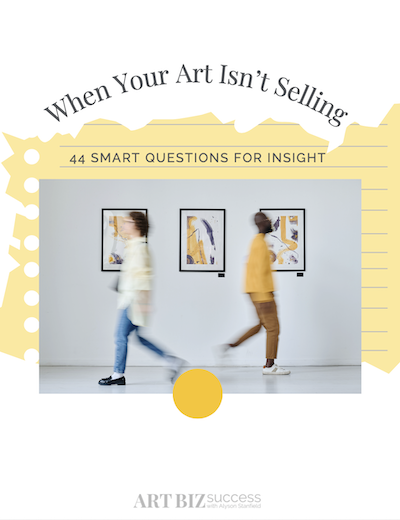A few weeks ago, I posted a Deep Thought about being taken seriously. Lots of you commented. Here are some snippets from the quotes:
From Catherine Chandler: My advice? Just keep on keepin’ on. Do what you do, do what you love. I
totally agree with the first comment…present yourself professionally,
don’t waste your energy on people who don’t understand, talk about your
work positively, and engage with people that have similar interests or
understand and support you.From Stacey Peterson: I think that first and foremost, you need to take YOURSELF seriously if
you want your peers to take you seriously. Treat your art as a job and
approach everything you do as a professional, and people will
eventually see that it isn’t just a hobby. And when that doesn’t work,
ignore them!
From Robert Rodriguez, Jr.: Again, the key is to act and think like an artist, not like someone
trying to become an artist. There is a significant difference.From Lisa Call: I used to feel this way – unhappy cause noone took me seriously. Putting in effort to impress others was a waste of my time. Now I don’t care what other people think – it’s a much happier place
to be. I’m having more fun now that I don’t feel a need to be "serious"
about my work. I prefer being joyous about it.
There’s more about this in today’s Art Marketing Action newsletter.
What is your advice about being taken seriously?
Image (c) Robert Rodriguez, Jr., Boulder Beach, Acadia NP




11 thoughts on “Being taken seriously as an artist”
In the needlework biz, we call it a “paycheck job”. I agree with you… it grates on the nerves to hear the paycheck job referred to as the “real” job!
hmmm…my artist husband just took me seriously for the first time…why? I brought him to a show opening with a new painting of mine he had not seen before…&…the painting was really really good…afterwards he mentioned an artist’s work he had liked ” a Sari Grove? “…( I think the proof is in the pudding…)
I refer to the full time job of teaching public school art as “my day job”. It definitely is important to the support of my family and my art business at this point, as well as the source of very good and extremely valuable healthcare for us. So I am an artist who teaches rather than “an art teacher”. My husband has owned a very successful real estate business for over 20 years but the benefits I supply make a big difference to his/our bottom line, (as well as the increasingly significant salary I have built up). It was more critical when my children were young to be employed in a “mom-friendly” job. Now the goal is to use the day job to help build up my art business while I head to the point of a deferred retirement. It will not be a huge pension, but I will retain the health benefits and aim to be making something close to 50-60% of what I was teaching from my art by the time I do this in about 6-7 more years. It’s in sight and beginning to happen. But meantime it’s critical that I introduce myself everywhere else as an artist, talk about that business and basically create the impression that that is who/what I ame . A little of the old “fake it till you make it”. You really aren’t faking anything, but many folks feel like a fraud when they first start trying to promote themselves. Naming being an artist as the first, main, real job is critical.
I purposefully avoid even mentioning my other work as it sparks conversations that I would rather not have. If I must say something, I refer to it as my non-artwork.
I think both as a business person and a writer the beginning of the journey is with me. I used to refer to myself as an aspiring writer because I hadn’t published a book yet and a writer actually told me to stop. Sometimes in my attempt to be likable and approachable I make myself seem less professional. It is something I have to continually remind myself of and I give myself a little pep talk before going to networking groups and whatnot. -Cordelia, http://www.CordeliaBlake.com
Bernadette: I never heard “fake it till you make it.” Love it. Jennifer: Good point. And I agree. Why mention the other? Unless, of course, you need to cultivate business for the other job and are in a networking situation. Cordelia: Yep, “aspiring” can weigh you down. Glad you had the counsel of another writer.
One of the batty things about the art world is the intense hierarchy of it. Not the fact that some art work is better than other art work- that is a given. I’m talking about the huge tendency for collectors, gallery people, museum curators, etc. to look so much at the list of professional accomplishments before they look at the actual art work. Even we visual artists fall into this habit, and we need to at least try to put the brakes on it. After painting for quite a while, I’ll be having my first solo exhibit in New York City this January. I am honestly delighted. Naturally I tell people about it. But it is odd how much more seriously people seem to take me as an artist once they hear about the show. Of course I’m glad for the extra mileage it offers me in this difficult art field. Yet it is a little bit sad as well to see how much weight is assigned to what is after all a pretty external measure of quality or accomplishment. All one can do is keep at making one’s work the deepest and most authentic art you can, but also keep reaching for some of these external measures of success. Especially the world of museums and galleries is taken by these things. We need to take them with a grain of salt ourselves as artists. But we have to have a relationship with these things to keep a career going.
Cordellia and Alyson: I often refer to myself as an “emerging artist”. NO MORE! Thank you so much. Philip: Congratulations on your NYC show. I am with you Philip, in hoping that other artist will “put the brake on it” the practice of judging other artist’s work based on the length of exhibit and awards lists. However, I understand that gallery owners and curators need to do research when judging whether or not to show an artist’s work. I am not defending the system as ideal. But we all do the same thing. We feel better when others validate our judgment. I applaud those who have the courage to trust their own judgment, but recognize that when a curator’s or art dealer’s decision results in shelling out or risking dollars, doing research is simply prudent and good business. This practice is all part of the game (the game being the business of art). It’s a good game, even if some of the rules suck, and I am glad to be playing it.
Philip: Yes, congratulations! It’s a huge deal and something to celebrate. Every profession has its milestones. Ours happens to be a solo exhibit in New York. Own it! Michael: You’re right. If it wasn’t the New York show, it would be something else. There are so many talented artists out there. So many! Sometimes, we have to distinguish among them based on something besides the art itself.
I spent the first 40 years of my life worrying about what kind of art I could create so people would take me seriously as an artist. When I finally let that go, and started to create art that was purely for myself and something I made just because I enjoyed making it, that when people started to take notice of what I was doing. Ironic, isn’t it? I also run a business that isn’t art, and I notice that humor helps in that too.
Pingback: 8 Tips for Stronger Art Show Submissions — Art Biz Blog